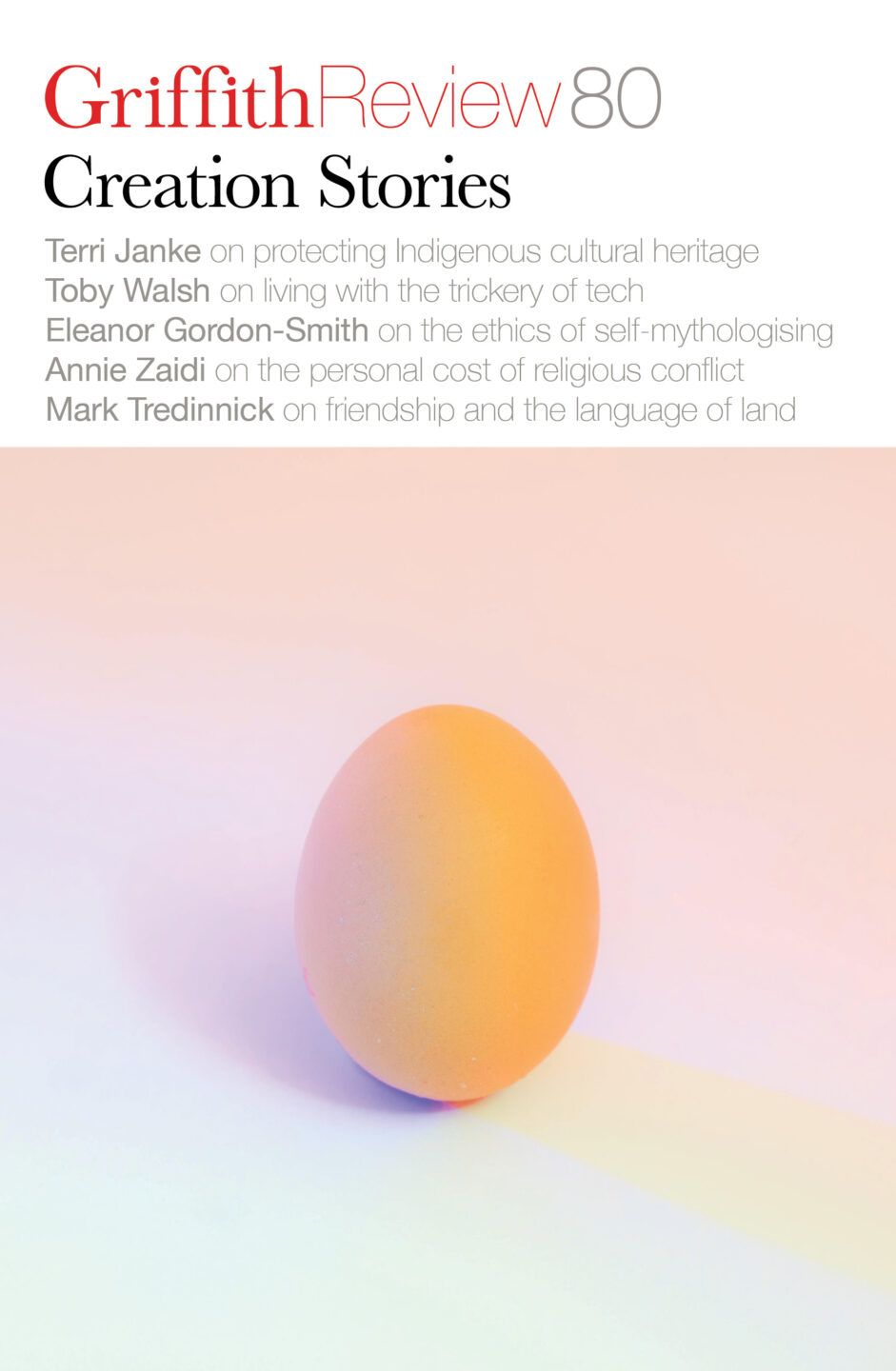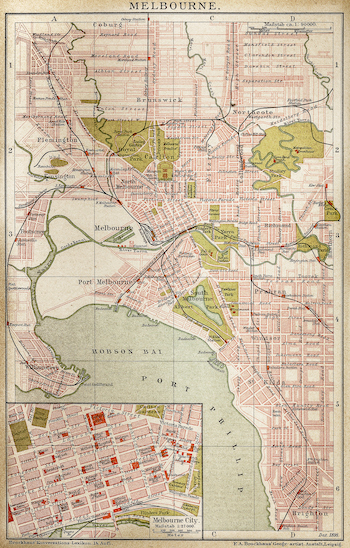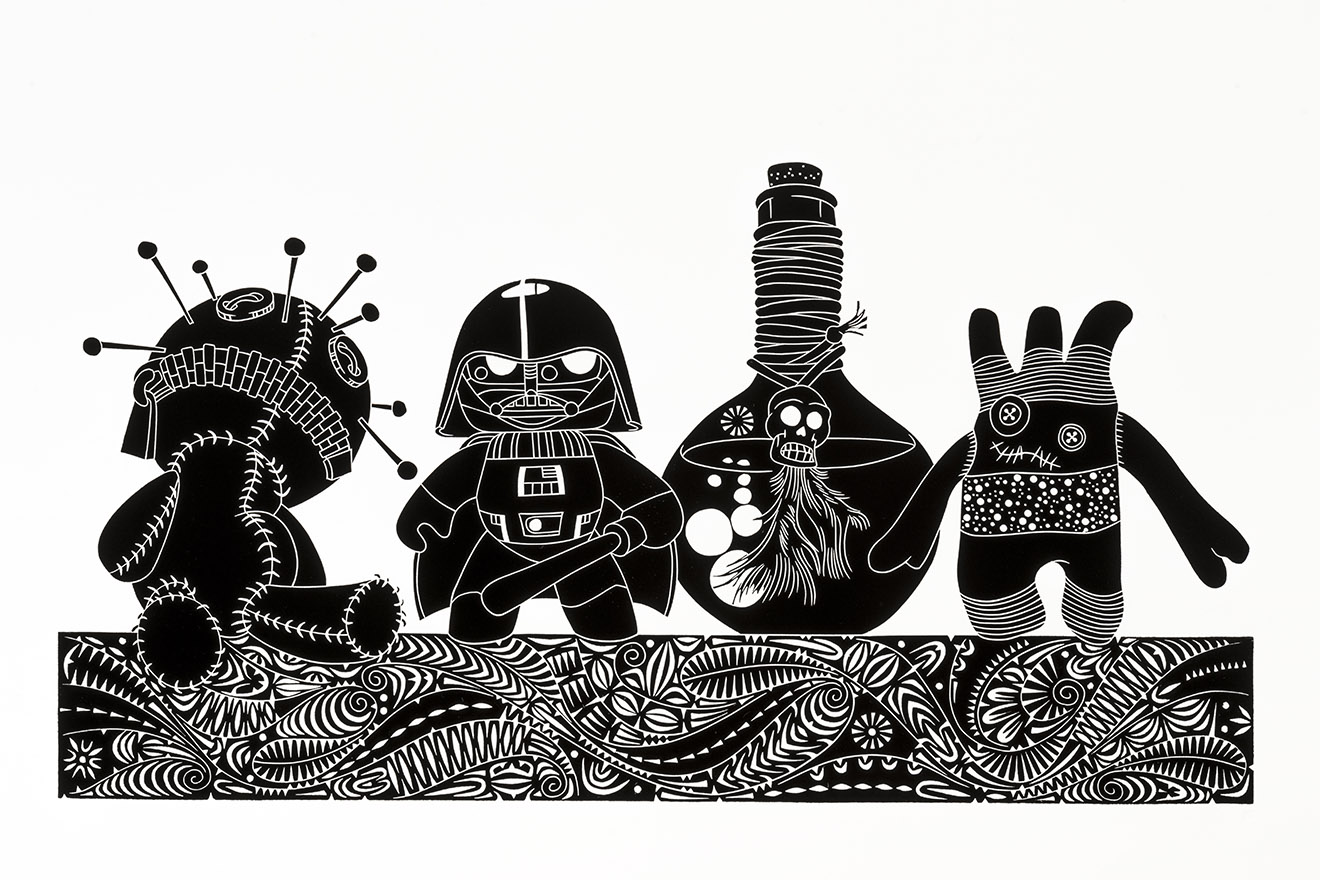Featured in

- Published 20230502
- ISBN: 978-1-922212-83-2
- Extent: 264pp
- Paperback (234 x 153mm), eBook

Already a subscriber? Sign in here
If you are an educator or student wishing to access content for study purposes please contact us at griffithreview@griffith.edu.au
Share article
About the author

Eleanor Gordon-Smith
Eleanor Gordon-Smith is a radio producer, advice columnist and a Harold W Dodds Fellow in Philosophy at Princeton University.
More from this edition

Medea – towards the end
PoetryShe wanted to confuse the staff and brings in a pebble from the garden as suggested, placing it into the pocket of the man in the next room.

The dancing ground
Non-fictionAfter some initial research, and only finding one historical reference to a ceremonial ground within the CBD, I confined the puzzle of Russell’s lacuna to the back of my mind. The single reference I found was in Bill Gammage’s book The Biggest Estate on Earth, where he writes: ‘A dance ground lay in or near dense forest east of Swanston Street and south of Bourke Street.’ Not a great lead because it was two blocks away from where it was depicted on Robert Russell’s survey.

Pop mythology
In ConversationEven though I grew up on a small, remote island, I was still heavily influenced by television – particularly the sort of cartoons that would play on Saturday mornings, mornings before school, after school and so on. When it comes to DC and Marvel and all of those superheroes, for me that was ignited by my late grandfather Ali Drummond, my mother’s father, who had boxes of Phantom comics. Phantom was my early introduction to the strong, powerful male being who had supernatural strength and abilities.